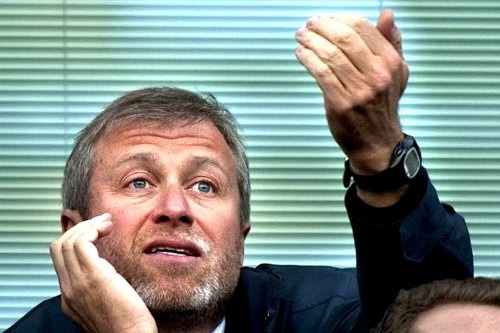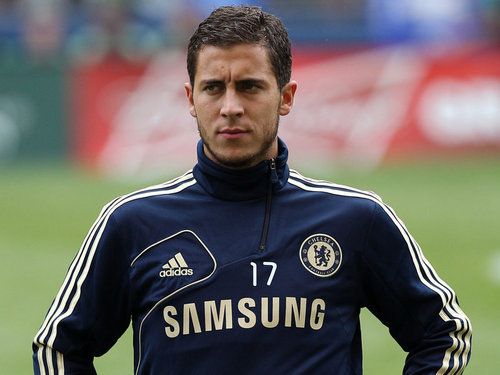Financial prudence at Chelsea
Financial prudence at Chelsea


By Amit Singh
Chelsea returned to their lavish spending habits this season spending around £80 million on new signings. This is bucking a recent trend as the club invested relatively little between 06-09 with net spends being at the low end of the Premier League for those seasons. Only after signing Torres and David Luiz did Abramovich’s spending increase once again. People will thus believe that - despite their lucrative adidas football kits sponsored by Samsung - Chelsea are flouting the Financial Fair Play, the FFP, and attempting to return to prominence by asserting themselves on the transfer market. However, there has been a shift in emphasis at Chelsea in the last few seasons, nowhere has this been more clear than in a number of high profile releases. Under Ancelotti the side let go multiple big earners such as Ballack, Deco and Carvalho and this season Meireles, Drogba, Bosingwa and Kalou were let go, many of whom earned big money.
When Abramovich first took over the club the model was spend, spend and continue spending. Between 2003-06 the club paid nearly £300m on bringing in new players, an astronomical amount for any side. Coincidently (or not so) this coincided with the clubs most successful period, domestically. The transfer policy was also incoherent. Chelsea were linked with a host of big names on a regular basis, even if they did not need them. Nowhere was this more evident than with the purchase of Andriy Shevchenko, a player Mourinho did not want, or need. Chelsea were free spending.
However, as noted between 06-09, after a degree of success Abramovich’s spending decreased massively. Chelsea signed a number of low profile signings such as Steve Sidwell, with the only big money additions being Zhirkov and Bosingwa. Generally speaking the club appeared to be changing their model, or Abramovich clearly felt he had invested enough. This period was less succesful as a result of poor signings and a huge turnover of managers, prompting more high spending in the 2010/11 season, where Fernando Torres and David Luiz were signed in January.
The club always paid high wages, which is why it was not surprising when the club released Joe Cole, Carvalho, Ballack, Deco and Belletti. However, the overwhelming part was that Chelsea had just won the Premier League, ending a 3 year Manchester United reign. The following season they brought in two names, Benayoun and Ramires, indicating that Chelsea were cutting costs. This is the first sign of a shift at Chelsea.
Despite the huge spending this season, the club also offloaded a number of high earners. Namely Didier Drogba, who was reportedly the clubs top earner alongside Lampard and Terry. The other players were squad players but they also would have earned large sums. Benayoun for example was on a reported £90,000 a week contract, which is why Chelsea were so eager to loan him out, even if they are still paying part of his wages. The same sort of situation is true of Essien. In fact, it’s believed Chelsea let go Essien and then Meireles for financial reasons, leaving the club relatively light in the centre of midfield. Only two players at the club, Lampard and Mikel, have featured this season at centre-midfield under Roberto di Matteo.

Further to this, other than Hazard, the other new signings were probably not on such astronomical wages. Bertrand for example, who started in the Champions League Final was recently given a new contract, only at £35,000 a week, compare that to the £90,000 contract offered to Benayoun just two seasons prior. There does appear to be some sort of shift to a more sensible wage structure at the club. The emergence of a wage structure is also corroberated by the fact that the club only offered Drogba a one year contract extension, a similar deal offered to Ashley Cole. The club clearly are not prepared to offer ageing stars huge money contracts any more.
Previously, Lampard negotiated a huge contract, which will likely be reduced if he signs a new deal. This sort of wage structure is similar to that at Arsenal, where players over 30 are only allowed 1 year extensions, or at least traditionally this was the case. This is apparently going to become a rule under Abramovich from now on, or so says a Stamford Bridge insider.
The club has also secured some notable financial deals over recent seasons to help them get closer to breaking even. The deals with Gazprom will bring in a significant, but unreported, amount of revenue. They also signed a partnership with Formula One team Sabre. The revenue brought in by the Champions League victory is also reported to be close to £60 million, with commercial opportunities having been increased resultantly.
Revenue into the club is thus increasing. Losses last season were £67 million, with £43 million being attributed to ‘exceptional costs’ (namely hiring AVB and firing Ancelotti) and those costs will be repeated in this year’s figures for the firing of AVB, although Roberto di Matteo will likely be on far lower wage and did not cost anything to bring into the club. Therefore Chelsea’s revenue will be up significantly and the wage bill, in theory, should be lower this term because of the releases and loanings of players.
Regardless, with the FFP looming the club might still need to slow down their spending and may see a continuation of unhappy over 30s who are only offered 1 year deals. This could become a major bone of contention with players like Cole, as well as Lampard, who will soon require a new contract. In the long run it will make the club’s model more sustainable.
It’s speculative at the moment to predict that Chelsea will be closer to breaking even soon. But, it does seem like the club are phasing out the high earners such as Drogba and could consider the same with Cole and Lampard, who will not be offered another lavish contract. If either of them extend their stay at the club it would likely be at reduced terms and for a season or two. This would be wiser than letting old players earn huge sums, whilst playing less. The contract extension for Bertrand is also a message that there could be life after Cole. Although, having been such a great servant to the club it does seem bizarre to only offer him one year.
It appears Abramovich is setting a precedent. An era of relative prudence does appear to be on the horizon. Only time will tell if Chelsea keep to this strategy.
This article is a guest post by Amit Singh. He is the editor and founder of Think Football and you can follow him on twitter @Think_Football. Comments below please







